The effects of the global pandemic will continue to be felt for quite some time.
But as we move into the final few weeks of 2020, now is an excellent time to look ahead and identify how COVID-19 is influencing teachers who plan to work overseas in 2021.
We asked thousands of teachers around the world for their insights on teaching abroad next year and whether the pandemic has played a role in shaping their future plans.
What we’ve learned has given us good reason to be optimistic, so let’s explore the key findings from our survey in more detail.
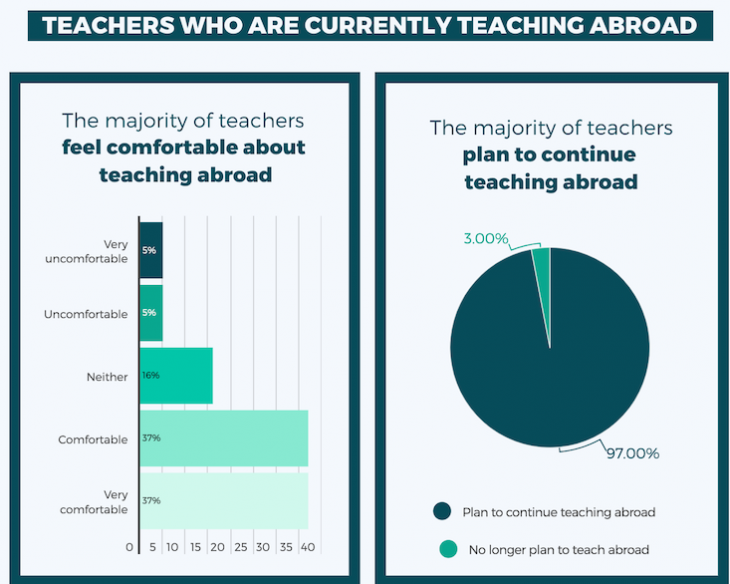
Teachers currently working abroad are not phased by the pandemic.
You might think that all the economic uncertainty and social anxiety caused by COVID-19 would’ve resulted in a significant number of teachers wanting to return home. But our research paints a very different picture.
Of the overseas teachers we surveyed, 97% gave a resounding yes to the question, “Do you plan to continue teaching abroad?”
And as for the 3% who intend to return home, COVID-19 was not given as a leading reason for their decision.
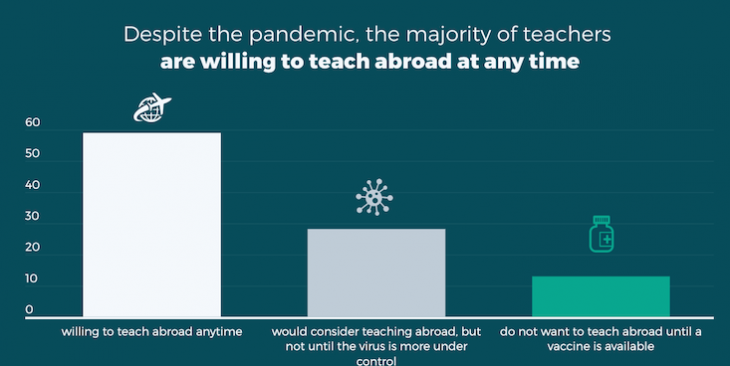
A lot of educators are still planning to teach abroad.
But what about teachers who were planning to teach overseas before COVID-19?
Well, our findings show that 92% still intend to work overseas and despite all the upheaval this year, 59% also indicated that they’d still be willing to relocate at any given time.
So If you’re a school looking to recruit new staff next year, remember that teachers, by-and-large, are an adventurous bunch and the opportunity to travel remains a big pull, even during a pandemic.
COVID-19 has impacted where teachers would like to teach in 2021.
Schools need robust recruitment strategies and working out how you can leverage your school’s location as an asset is crucial.
Our data reveals that one-in-three teachers have considered the spread of the virus when thinking about ideal destinations for their next job.
But perception is everything.
We asked our network to note down which regions they would be interested in relocating to and their top three choices.
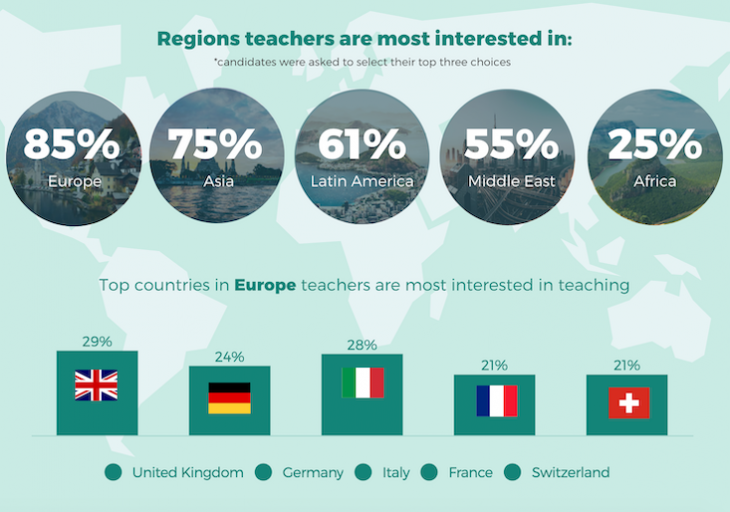
Europe (85%) is where most educators still want to work, followed closely by Asia (75%) and Latin America (61%).
Only a quarter of teachers highlighted Africa as a favored destination. It’s likely that how teachers perceive local government responses to the virus will have played a role in their decision-making process.
In addition, not everyone’s home country has had a sound response to the pandemic. Consequently, other international destinations may be more appealing in comparison.
Some regions are perceived to have fared better than others in handling the virus, even if the stats tell a different story.
It’s also worth noting that although Europe has struggled to contain COVID-19, teachers are also likely to be looking at the bigger picture and will be considering things like access to healthcare, quality housing, and perhaps most important of all, the potential for economic bouncebackability.
Educators may favor countries that are perceived as being more stable.
We were also keen to identify which specific countries within each region will hold the most appeal for teachers in a post-pandemic world.
Again, we discovered that perceptions on how different countries have handled the virus played a role in teacher preferences.
Of the top countries in Asia that teachers are interested in relocating to, 42% listed Japan as their number one preference. In comparison, only 26% opted for China, despite the country’s rapid growth in international education and the potential for higher salaries.
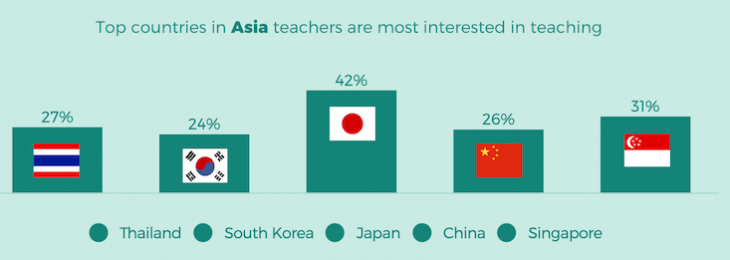
It’s quite likely that although China has done well to suppress the virus, the political and diplomatic fallout from the pandemic will inevitably be a factor with some teachers.
COVID-19’s impact on teacher trends can be felt elsewhere too. For example, of the top countries in the Middle East, almost 75% of teachers surveyed listed the UAE as their preferred choice.
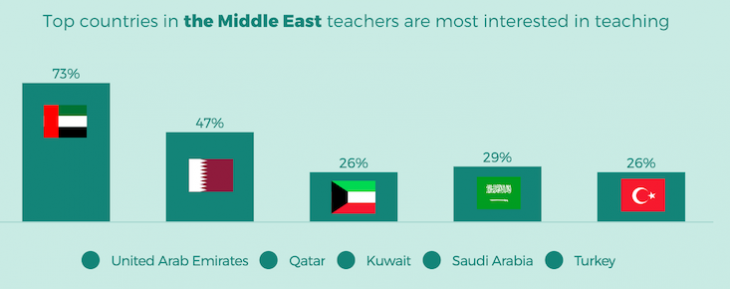
Now, although the UAE has long been a popular destination for teachers, its closest challenger in our survey was Qatar, with just 47%.
Compared to many other countries, the UAE has not recorded the same high levels of community transmission. There’s also a belief among educators that the country is stable and has succeeded in handling the virus.
But we shouldn’t necessarily see success in stemming the flow of COVID-19 as the only barometer.
South Africa, Brazil and the UK all rank highly among teachers who participated in our survey, yet all three countries continue to record large numbers of virus cases.
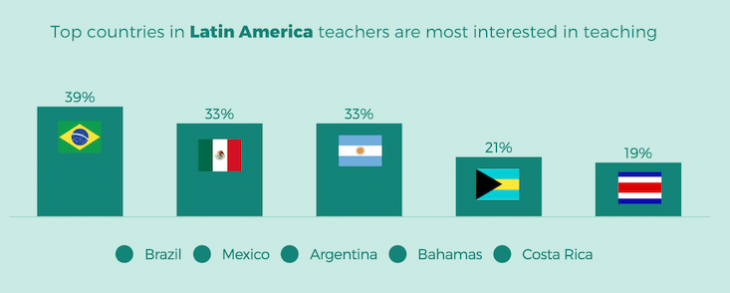
Again, it’s important to note that many educators will be thinking about the pandemic’s long-term implications and are likely to favor countries that traditionally offer greater economic stability.
The signs are promising for 2021
The last year has been unlike any other in living memory; 2020 has caused enormous economic uncertainty for both schools and teachers alike.
But what our survey reveals is just how resilient teachers can be. For more great insights on the pandemic’s impact on teachers’ plans in 2021, take a look at our informative infographic to get the full picture.
Yes, the pandemic is inevitably forcing educators to reassess their options, but there is also a lot of optimism around what 2021 will bring.
There are clear signs that teachers are already planning for the year ahead and are getting ready to embrace new opportunities in schools worldwide rather than simply giving up on overseas travel.
Why not meet them halfway and start hiring amazing teachers today at one of our upcoming online recruitment fairs.

